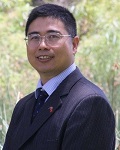China’s tourism boom has attracted global attention from governments and industry; tourist destination countries and regions are keen to attract lucrative Chinese tourists to benefit their economies. While China has proven to be Australia’s largest and most valuable inbound tourist market, Chinese tourist flows and dispersals among Australian states are unbalanced. Western Australia (WA), despite occupying one-third of the country’s land mass, continues to receive a proportionally low share of Chinese tourist arrivals.
The purpose of this research was to critically assess WA’s tourism provisions and resources toward the Chinese market and provide research-informed recommendations for the WA tourism industry to better develop the Chinese tourist market in the future.
Numerous types of Chinese tourists visit Australia based on diverse motivations. The academic literature shows that Chinese tourists visit Australia to broaden their horizons, relax, and have fun. The Chinese middle class visits Western countries like Australia as a way to showcase their social esteem and status. Australia’s world-class natural environment, featuring fresh air, blue skies, unspoiled beaches, and unique animals, is especially attractive to Chinese tourists. In addition, Australia enjoys a reputation as a safe destination, providing quality food and wine and a variety of aquatic/coastal tourist activities.
This report elaborates on three types of Chinese tourists to Australia: business and corporate travellers, young and student travellers, and holiday tourists. In the context of WA tourism, free and independent travellers (FITs) from the greater China region should be targeted although small-scale packaged tours from China remain popular. An increasing number of Chinese tourists also seem interested in self-driving tours, including those using recreational vehicles.
Most Australian states have developed state-specific tourism strategies in an effort to develop the Chinese tourist market. Some states have also formulated China-focused tourism strategic plans, a worthwhile endeavour to help WA tourism authorities further tap into the Chinese market.
A number of tour operators in WA are targeting Chinese tourists. Most of these operators have a Chinese background and employ Mandarin-speaking staff. Two major tourism products are currently offered to Chinese tourists in the WA market: customised tour packages and pre-arranged tour packages. The former are more personalised, while the latter are more structured with fixed dates, times, and itineraries. Tour length can vary from 1 to 14 days, with most tours lasting around 3–4 days. Popular attractions among Chinese tourists in WA include the Pink Lake, sandboarding in Lancelin, the lobster farm at Cervantes, Margaret River wineries, snorkelling and guided nature walks on Abrohlos Island, and dolphin feeding at Monkey Mia.
This research identifies 5 major challenges facing the WA tourism industry in drawing the Chinese market:
- Low market awareness
- Geographic distribution of tourist attractions
- Lack of telecommunication infrastructure across regions
- Lack of Chinese market knowledge and skills among service staff
- Lack of a world-class hospitality service standard
Based on multi-faceted analyses of academic literature, online archives, interview data, and field trips, our research team devised the following 4 recommendations:
- We encourage the development of a thematic tour-guiding and interpretation system addressing WA’s flora, fauna, history and heritage. Such information will help WA’s tourism industry impress Chinese tourists on group tours by emphasising the region’s unique vegetation, ecological system, wildlife, early settler history, and aboriginal culture.
- We suggest that the tourism industry closely monitor Chinese market diversification and target niche markets. Chinese FITs, inter- and intra-state Chinese students, and “Chinese grey nomads” deserve special attention given their growing importance in the WA context.
- As a particular focus, we recommend that the WA tourism industry and its associated sectors work more diligently to boost the self-driving Chinese tourist market. Government agencies, industry associations, car rental companies, and other stakeholders should strive to offer a safer, more convenient, and more user-friendly self-driving tourism environment for Chinese tourists in WA.
- We strongly suggest that the WA tourism industry and its players remain alert and sensitive to the disruptive nature of new technologies and their tourism applications. Specific to the growing Chinese tourist market, one strategy is to maintain a localised value chain geared towards Chinese tourists. WA tourism businesses may struggle to realise business innovations and value-chain localisation on their own. Establishing strategic partnerships and collaborative relationships with tourism businesses in China is highly recommended.
To implement the above recommendations, multi-stakeholder collaborations involving industry, government, and universities will prove indispensable. Our research team, which currently consists of university-based researchers and industry practitioners, welcomes interested stakeholders to join hands in pursuit of these goals.
The research reported herein was conducted before the outbreak of novel coronavirus pneumonia (COVID-19); therefore, the impact of COVID-19 on WA tourism is not covered in this report. However, we would speculate that Chinese tourists may prefer an outbound destination such as WA, whose natural beauty and refreshing environment could reinvigorate them, following the COVID-19 crisis. The issues and recommendations outlined in this report are thus future-proof.




